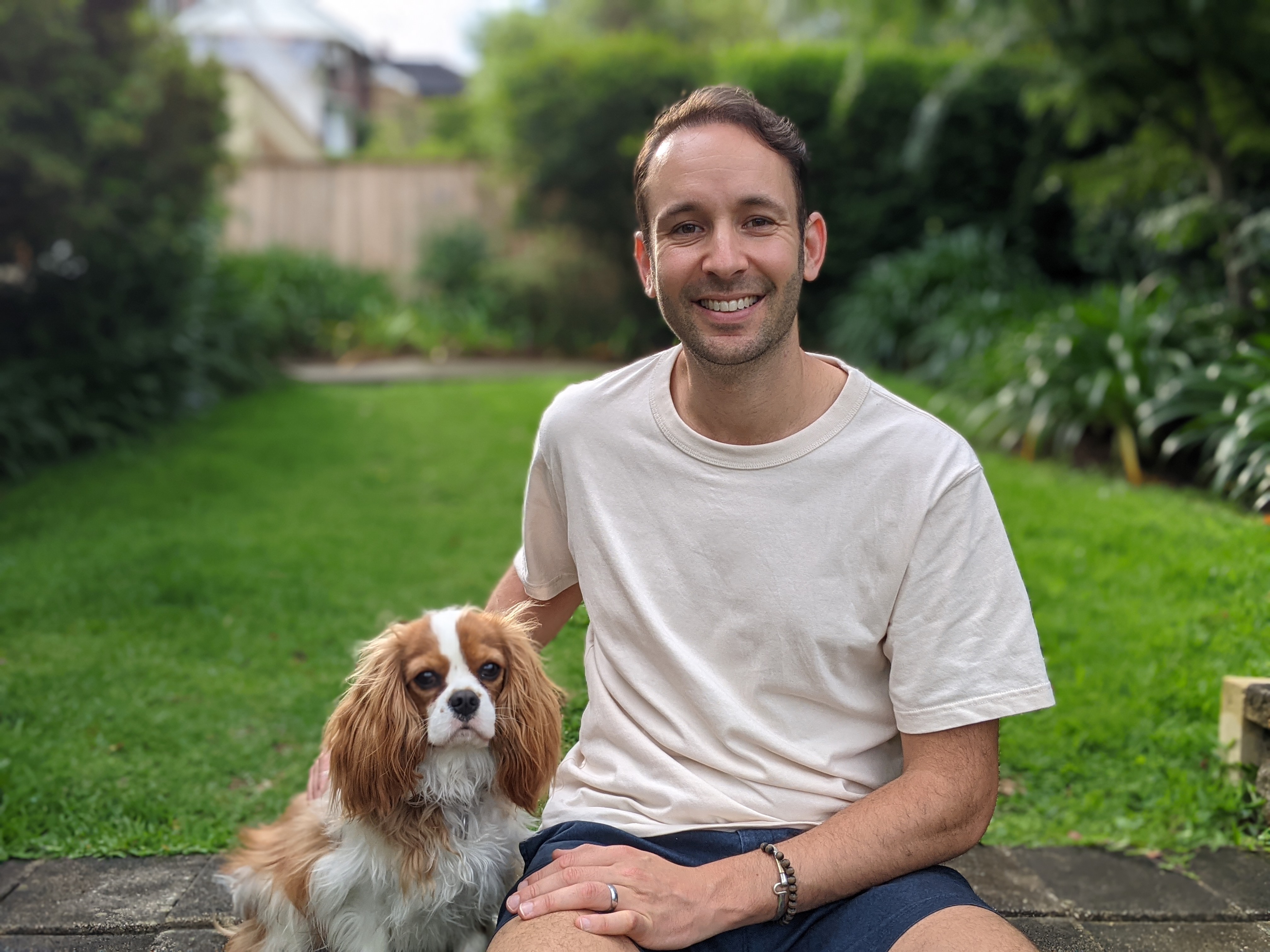Joel’s interest in computers led him to a job with Google, working in education technology in San Francisco, London and Sydney. But it was his passion for people that led him to the University of Melbourne’s Master of Applied Positive Psychology.
“Psychology and technology are two areas that have always interested me. Having spent the last 15 years understanding how computers work, now I want to focus a bit more on people,” Joel said. “My interest in psychology was renewed after I experienced some personal health issues, and I decided to study a Master of Applied Positive Psychology at the University of Melbourne.”
Joel looked at several different areas of psychological study before settling on Applied Positive Psychology, which felt like the right fit for his interests and personality. “As a positive and optimistic person, I like the idea of helping others reach their full potential,” Joel said. “Also, the flexibility of remote learning was a big draw.” Remote learning was especially important to Joel – not only is he studying part-time while working full-time, he also has an 800-kilometre commute to the classroom. “I live in Sydney and fly to Melbourne once a month for the intensives, while doing all other work remotely,” Joel explained.
Returning to study after 15 years was “quite daunting”, but Joel’s lecturers and coursemates made the transition an easy one. “The lecturers were very supportive and engaging. The team was welcoming and very understanding that everyone coming into the program had varying levels of education and experience. In addition, the diversity of the students – who came from all different backgrounds – meant I could learn from everyone in the room.” He described the program as “a journey of self-discovery,” elaborating that he “not only learned more about how people work, but also about myself.”

Joel’s motivation to study the Master of Applied Positive Psychology was more internal than external, which he acknowledged may not be the norm. “I was motivated to start this course more out of personal interest than pursuing a specific career goal or direction. I’m actually not entirely sure where the path leads for me,” he admitted, “which I don’t think is very common when undertaking a masters. However, it feels like I’m on the right track.”
Although his precise way forward remained undecided, Joel was excited by all the possibilities and looked forward to contributing to a growing discipline. “Positive psychology is a relatively new field, which means there are a lot of opportunities for further areas of research and development. In the future, I hope to add to the existing body of work.”
One specific change Joel hoped to see in the future was a reduced reliance on standardised testing in secondary education. “I’m quite passionate about this actually,” he said. “When in life are you told that you can’t use any technology, can’t speak to anyone and must handwrite for three hours? I’m not sure of any job that requires this type of scenario. Collaboration, problem-solving and communication are critical in the workplace, yet high school students don’t often get to practice these skills for the sake of an assessment. It’s very strange.”
In the moments when Joel isn’t studying or working, he’s usually on the move. “I keep very physically active, playing basketball, swimming, running, cycling and more. One of my goals this year is to join the Manly Life Saving Club and become a volunteer lifesaver on weekends,” he said. In addition to physical fitness, Joel made sure to take care of his mental health through activities like journaling and meditation. He also had a tip for anyone seeking a better understanding of mental health issues in general: “Last year, I completed the Mental Health First Aid course. It only takes two days. I’d recommend that to anyone who is looking at understanding mental health issues and how to be a first responder.”
Joel’s parting words: “The best type of wealth is health.”
Learn more
Master of Applied Positive Psychology Explore all our courses